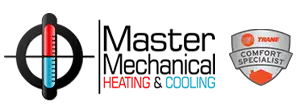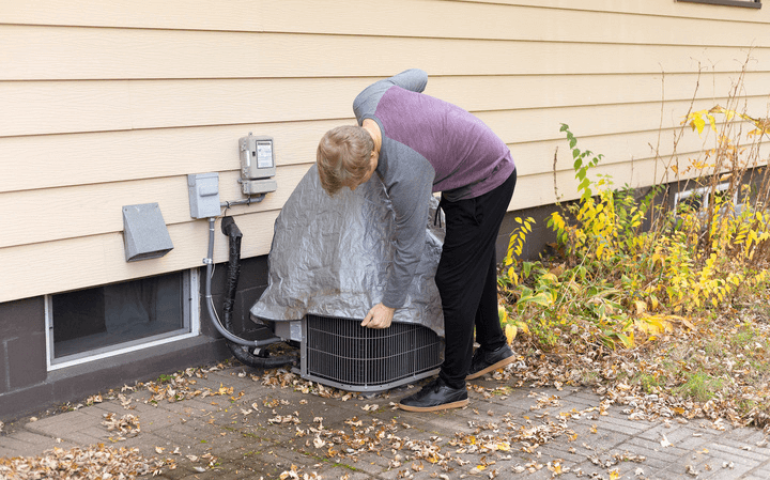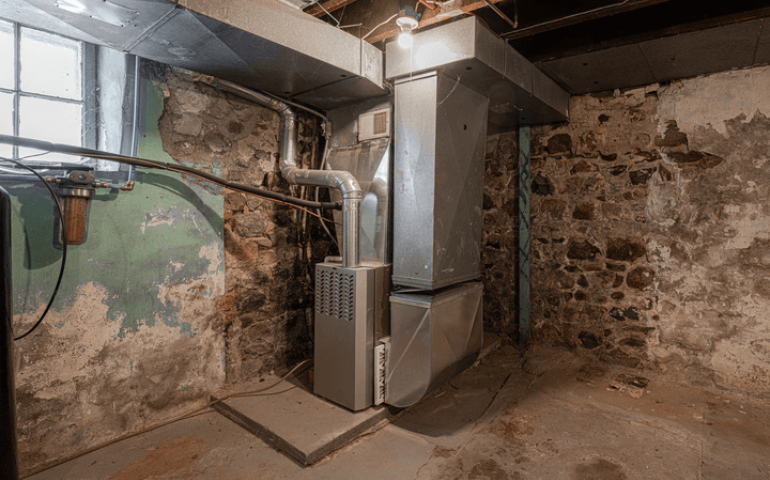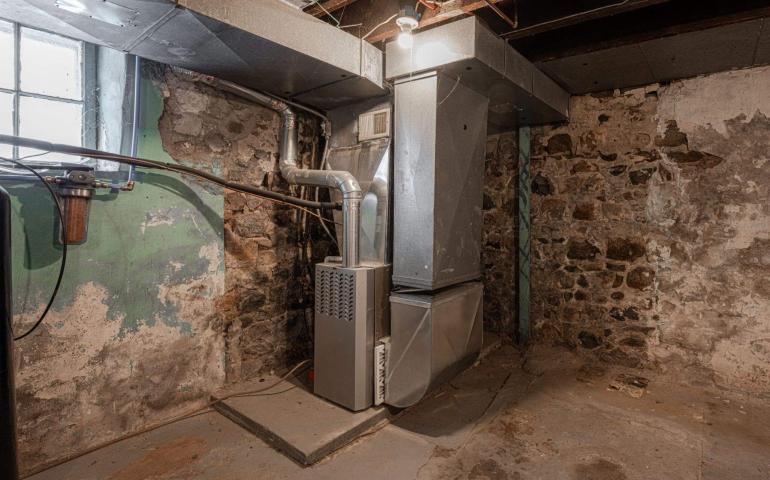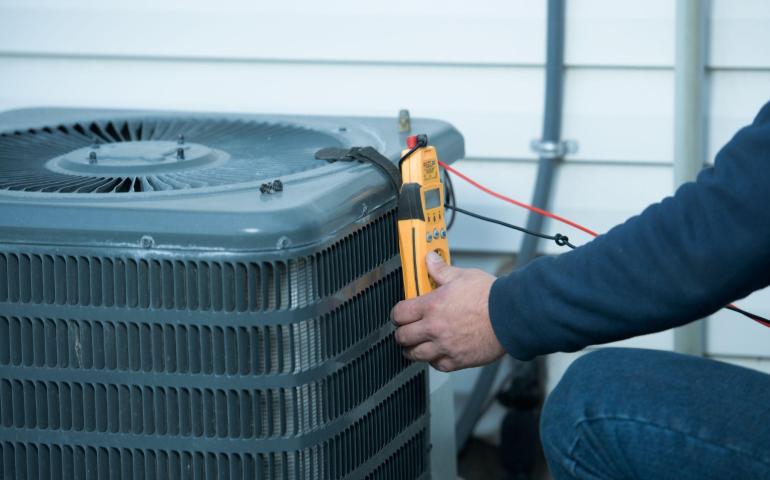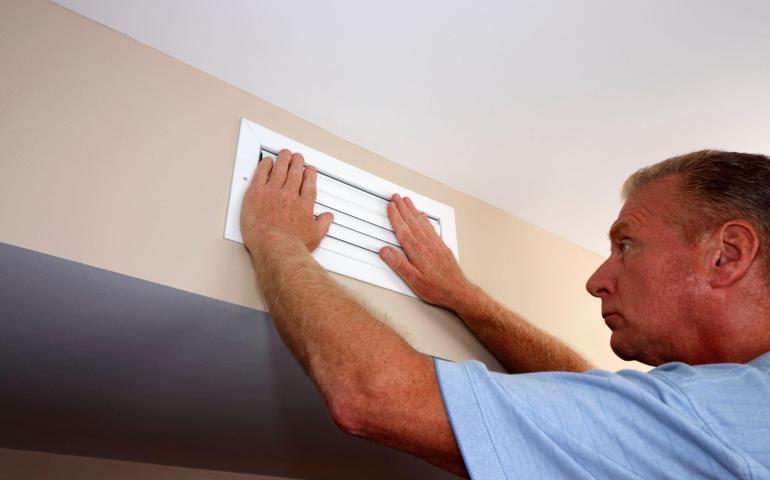Frigid winter temperatures make heating systems essential in the Chicagoland area. One of the most common options to keep your home warm and cozy is a gas furnace. But are gas furnaces safe? When properly maintained, yes.
Like any system that uses natural gas, they require care to run safely and efficiently. To maintain a comfortable indoor temperature, this type of furnace requires proper care to operate safely and efficiently. Due to its use of natural gas to heat your home, there are some considerations you should take, not only to keep your furnace in good condition, but also to protect your home and family from unnecessary risks.
How Gas Furnaces Work and Why Safety is Important
A gas furnace operates by igniting natural gas in the burners. The heat passes through a heat exchanger, while a blower pushes the warm air through your ducts and into your home. Exhaust gases are then vented safely outside through a flue or venting system.
When everything works properly, this process is safe and efficient. However, without regular furnace maintenance, issues such as gas leaks, carbon monoxide buildup, or overheating can become safety concerns. These dangers of gas furnaces highlight why preventative safety measures are critical, not just for efficiency, but for protecting your home and family.
Top Gas Furnace Tips To Keep Your Home Safe
- Replace or Clean Furnace Filters Regularly
A dirty air filter forces your furnace to work harder than it needs to. This can cause overheating and reduced airflow, which results in higher energy bills for you. You should clean or replace it every 1 to 3 months to keep your furnace working properly. - Keep the Area Around Your Furnace Clear
Your furnace needs room to breathe. Storing items such as storage boxes, cleaning supplies, or flammable materials nearby can block airflow and create a fire hazard. There should be at least three feet of clearance around the unit at all times to avoid a dangerous situation. - Install and Maintain Carbon Monoxide Detectors
A byproduct of gas furnaces is carbon monoxide, so having detectors in your home is non-negotiable. These detectors should be placed near bedrooms and on every level of your home, and test them monthly to ensure they are functioning properly. Change the batteries at least once a year, and replace them every 5 to 7 years to ensure any leaks are caught in time. - Practice Safe Thermostat and System Operation
It might be tempting to crank the heat way up on those freezing Chicago days, but that will only overwork your furnace. Instead, use a programmable or smart thermostat to maintain a consistent temperature. Keeping your vents open will help balance the airflow within your home, resulting in more efficient heating throughout. - Watch for Warning Signs of Furnace Trouble
Pay attention to signs your furnace might need some attention. If you hear loud banging, smell gas or unusual odors, or experience symptoms of carbon monoxide exposure such as headaches or dizziness, turn your furnace off and call an HVAC professional immediately. - Know How to Shut Off Your Furnace in an Emergency
You should know where the power switch for your furnace and gas shutoff valve are. In the event of a gas leak or other emergency, shutting off your furnace as quickly as possible can prevent damage or danger until a professional arrives. If you can’t find them, an HVAC technician can show you where they are during your next service appointment. - Schedule Annual Professional Inspections
Although most of these furnace safety tips can be implemented on your own, they are not a substitute for professional heating care. During an annual tune-up, our certified technicians inspect components like burners, heat exchangers, ventilation systems, and safety controls to ensure your furnace operates safely and efficiently. Preventative care is the best way to avoid system breakdowns and heating emergencies. Consider an HVAC service membership to make furnace maintenance easy and stress-free.
The Dangers of Skipping Furnace Maintenance
Skipping furnace maintenance may seem harmless, but it can lead to serious consequences. Neglected systems break down frequently, run less efficiently, and are at greater risk for carbon monoxide leaks.
Our technicians identify hidden problems, such as cracked heat exchangers or clogged burners, during routine inspections and repair them before they turn into bigger hazards. Preventive gas furnace maintenance goes a long way toward avoiding costly repairs and keeping your home safe.
Stay Safe and Warm with Master Mechanical
Furnace safety is about more than just comfort, it’s about protecting your family and your home. By following these gas furnace safety tips, you can enjoy peace of mind all winter long. Being aware of the dangers of gas furnaces and staying on top of scheduling preventative maintenance helps keep your family safe.
The team at Master Mechanical is committed to keeping your furnace running safely and reliably. Scheduling your service appointment today will ensure your furnace is ready to handle the cold season ahead.
